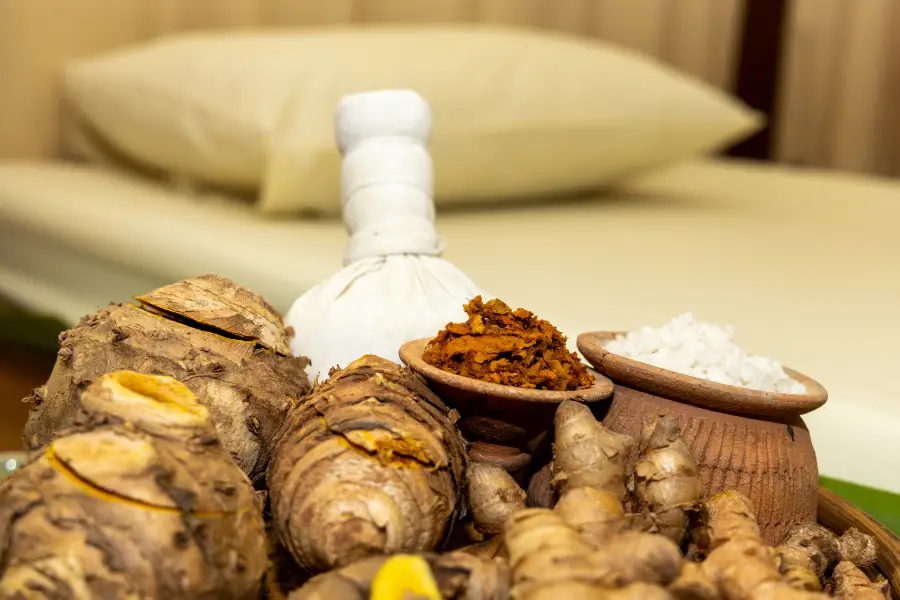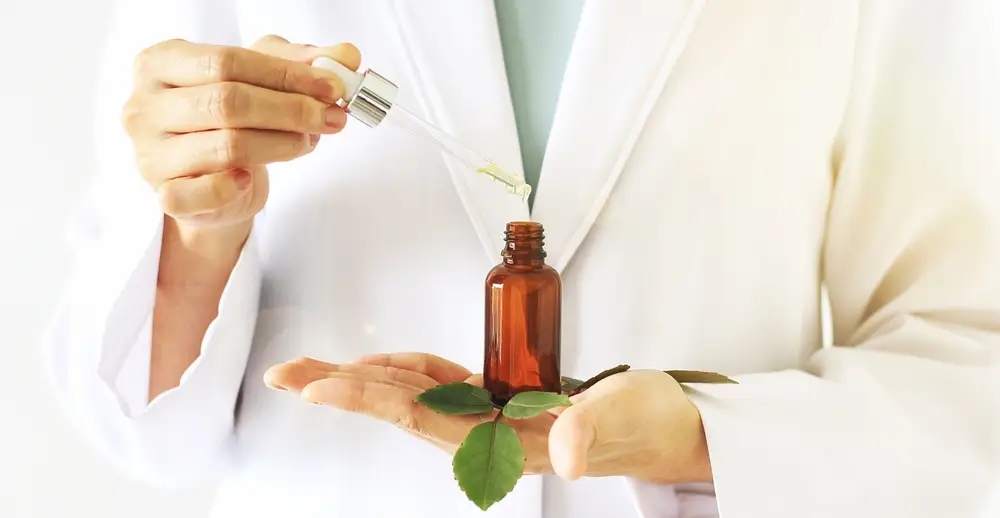Menopause isn’t just a physical transition; it’s a journey with its own set of challenges. When hot flashes become a constant, their impact goes beyond the heat. In this blog, we dive into the world of natural remedies, offering you a guide to easily manage these effects. Hot flashes may be a sign, but they’re not insurmountable. This blog unveils the best herbs to help you bring relief and comfort from hot flashes.
Contents
Understanding Menopause and Hot Flashes
 Menopause is the natural decline of female reproductive hormone production and the conclusion of a woman’s menstrual cycle. It usually begins during your 40s or 50s, marking a transformative phase in a woman’s life.
Menopause is the natural decline of female reproductive hormone production and the conclusion of a woman’s menstrual cycle. It usually begins during your 40s or 50s, marking a transformative phase in a woman’s life.
Now, let’s turn our attention to the main focus: hot flashes. These sudden bursts of heat, often accompanied by sweating, are a common symptom of menopause. They arise from hormonal fluctuations, primarily a decrease in estrogen levels. While hot flashes are a natural part of the menopausal process, their effects extend beyond the physiological.
The Impact on Daily Life
Hot flashes aren’t just fleeting moments of warmth; they have a tangible impact on your daily life.
- The unpredictability of these flashes can disrupt your routine, affecting both your professional and personal activities.
- The sudden onset of heat can be uncomfortable and distracting, influencing your mood and concentration.
- Beyond the immediate discomfort, hot flashes can interfere with your sleep, leading to fatigue and irritability.
Many women find themselves navigating a delicate balance, trying to manage these symptoms while maintaining a sense of normalcy in their daily lives.
In essence, understanding menopause involves recognizing that hot flashes are not isolated events. So, acknowledging these impacts is the first step towards finding effective solutions and regaining control over your daily experiences.
How Hot Flashes Are Treated?
 To alleviate these symptoms and improve the quality of life during this transition, there are remedies available, with herbal solutions standing out as effective and holistic options. Herbs offer a range of benefits in treating hot flashes:
To alleviate these symptoms and improve the quality of life during this transition, there are remedies available, with herbal solutions standing out as effective and holistic options. Herbs offer a range of benefits in treating hot flashes:
- Phytoestrogens:
Many herbs contain phytoestrogens, plant compounds with estrogen-like effects. These compounds can help balance hormonal fluctuations, reducing the frequency and intensity of hot flashes. - Additional Benefits
Herbs go beyond addressing hot flashes, offering extra perks. Some act on the nervous system, soothing tension and promoting better sleep, crucial during menopause. Others boast antioxidants that support overall health and well-being. - Collaboration with HerMantra
To ensure you’re maximizing the benefits of herbal remedies and minimizing potential side effects, collaborate with your HerMantra during your treatment. Herbal experts can provide personalized recommendations based on your specific needs and health conditions.
Herbal remedies, with their natural and multifaceted approach, present an accessible and gentle way to manage the onset of hot flashes. Therefore, by incorporating these remedies into your routine under the guidance of experts, you not only address the immediate symptoms but also promote holistic well-being during the menopausal transition.
Best Herbs To Manage Hot Flashes

Managing hot flashes naturally involves harnessing the power of herbs. So, let’s explore some of the best herbs known for their efficacy in handling hot flashes:
- Black Cohosh:
- Black Cohosh, a perennial plant native to North America, has a long history in traditional medicine.
- Benefits: It is believed to alleviate hot flashes by influencing serotonin receptors, helping regulate body temperature and reducing the intensity and frequency of flashes.
- Red Clover:
- Red Clover, rich in phytoestrogens, has been a staple in herbal medicine for centuries.
- Benefits: Its phytoestrogen content mimics estrogen in the body, potentially easing hot flashes and supporting hormonal balance during menopause.
- Dong Quai:
- Dong Quai, originating from Chinese medicine, is often referred to as the “female ginseng.”
- Benefits: Known for its balancing effects on hormonal activity, Dong Quai may provide relief from hot flashes and promote overall well-being.
- Evening Primrose Oil:
- Extracted from the seeds of the evening primrose plant, this oil is rich in essential fatty acids.
- Benefits: Its anti-inflammatory properties may contribute to reducing the severity and frequency of hot flashes.
- Maca Root:
- Maca Root, native to the Andes, is celebrated for its adaptogenic properties.
- Benefits: By supporting the endocrine system, Maca Root may help regulate hormonal imbalances, potentially mitigating hot flashes.
- Soy:
- Soy, a legume rich in isoflavones, has been a dietary staple in many cultures.
- Benefits: Isoflavones in soy act as phytoestrogens, offering a natural approach to managing hot flashes.
- Flax Seeds:
- Flax seeds, packed with omega-3 fatty acids, lignans, and fiber, have diverse health benefits.
- Benefits: The omega-3 fatty acids may help regulate hormonal fluctuations, providing relief from hot flashes.
- Valerian:
- Valerian, renowned for its calming properties, has been used for centuries as a remedy for various ailments.
- Benefits: While primarily known for promoting relaxation, Valerian may indirectly help manage hot flashes by reducing stress and improving sleep quality.
- Ginseng:
- Ginseng, an adaptogenic herb, has a rich history in traditional medicine.
- Benefits: Its adaptogenic properties may help the body adapt to stress, potentially reducing the frequency and intensity of hot flashes.
Incorporating these herbs into your daily routine, either through dietary supplements or herbal teas, can be a natural and holistic approach to managing hot flashes during the menopausal transition.


